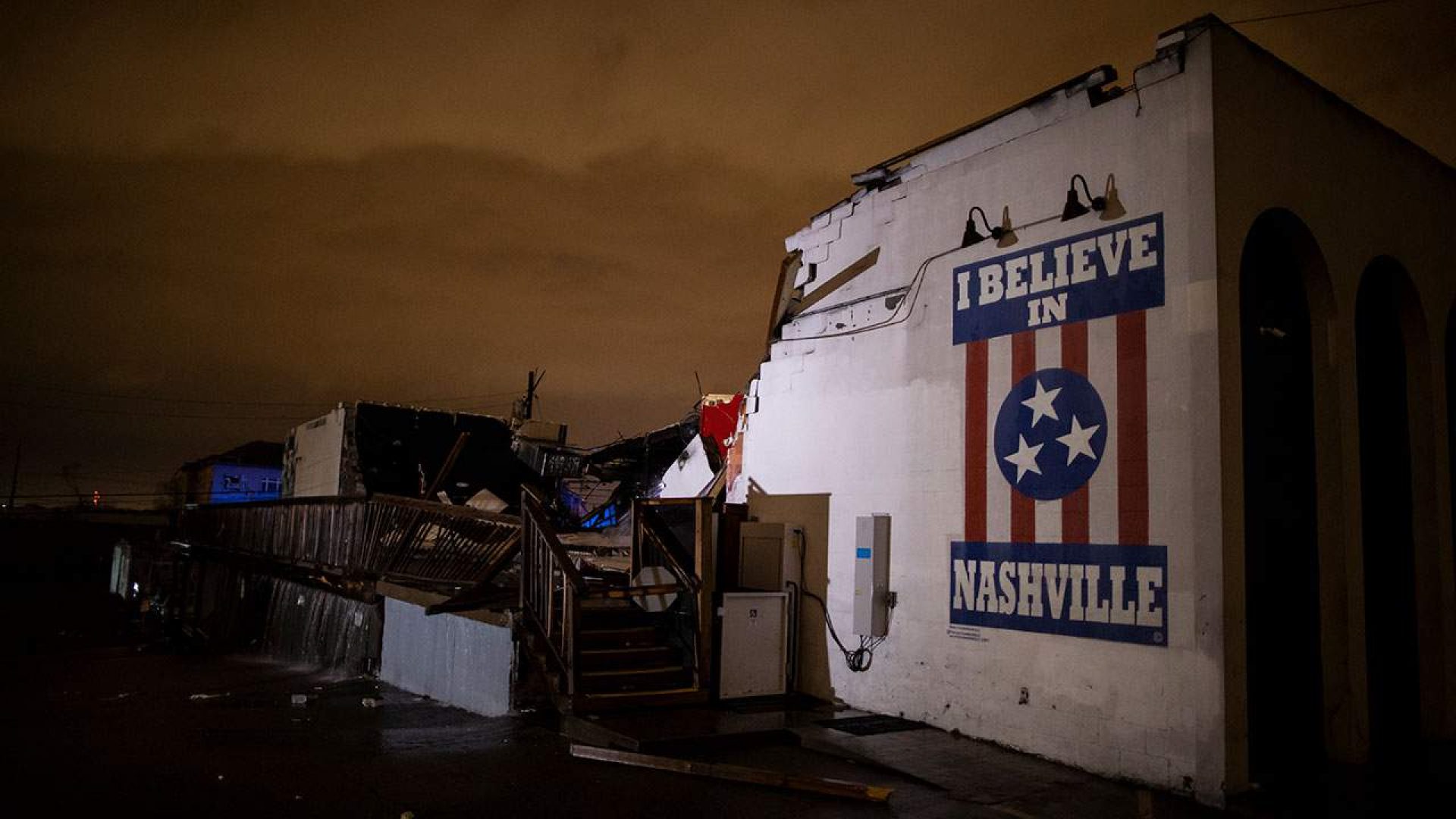On March 3rd, 2020, at 1 o’clock in the morning, a couple EF-3 and EF-4 tornados touched down and traveled through downtown and into Wilson County to the east, traveling as far as Cookeville, over 210 miles. The tornados struck a few hours before voting stations were scheduled to open for the Tennessee Super Tuesday primary, according to National Review .
At least two dozen people were killed, and thousands of buildings were left damaged or destroyed – with streets impassable with debris and downed power lines. Many more were left without power and some have just recently gotten it back. This kind of natural disaster is one that typically makes the national news for days. Hundreds, if not thousands, of volunteers quickly flooded the streets where the tornados struck, moving debris, helping residents salvage belongings, and setting up food stations to help sustain those picking through the wreckage.
Donations have poured into Music City in the wake of the March 3rd tornado, as city officials and residents look to rebuild expansive areas of Davidson County. On Wednesday, Mayor John Cooper told reporters more than $670,000 has been donated to the Community Foundation of Middle Tennessee, which officials have pointed to as the key resource for monetary donations, according to the foundation’s website. Those dollars have been redistributed to nonprofits in the community that are providing services to those impacted by the storm.
In addition, the Community Foundation’s collections, tech giant Google has committed $100,000 to Nashville’s recovery efforts, while Amazon, one of the city’s newest corporate recruits, has directly contributed supplies, the mayor said. Separately, Cooper said Hands on Nashville, the nonprofit tasked with coordinating volunteers, has received interest from 26,000 volunteers. Those volunteers have played a key role in helping Nashville transition from emergency to recovery. The previous owner of the Nashville Predators, Craig Leipold (now the owner of the Minnesota Wild), contributed a combined $50,000 to the recovery efforts. The National Hockey League (NHL) later matched that contribution.
Local Nashville Olympian, Shawn Johnson organized a fundraiser through GoFundMe on behalf of Community Foundation of Middle Tennessee and over the course of a week raised over $114,000 with 3.2K donors, and 22.K shares. Over the course of the week following the tornadoes, the Community Foundation of Middle Tennessee says more than $6.5 million in donations has been pledged to go to their emergency relief fund. Tennessee also received a $476,000 federal grant to support the mental health needs of victims of deadly tornadoes earlier this month. The Tennessee Department of Mental Health and Substance Abuse Services says the grant comes from the Federal Emergency Management Agency Crisis Counseling and Training Program.
On March 4th, just two days after the tornado, Tennessee Gov. Bill Lee announced that the state had its first confirmed case of the novel coronavirus, according to the Tennessean. When calls for social distancing swept the nation as concerns about the coronavirus rose earlier this month, middle Tennessee was still reeling from the tornadoes. Houses were still roofless, people were still crashing on friends’ and family’s couches or in hotels and volunteers were still gathering by the hundreds to help the recovery.
This community, primed to show up physically for one another in a time of need, now grapples with an unprecedented challenge. How does a city deal with a natural disaster and a pandemic at the same time?
At the same time, the governor called for all schools in Tennessee to close last week to help mitigate the spread of COVID-19, the disease caused by the novel coronavirus. And since Monday, March 23, Nashville has been under a “safer at home order,” which closes all nonessential businesses and encourages residents to stay home. Still, volunteer efforts continued, even amid that changing tone. The focus had shifted from debris removal to donations, and organizations like Hands On Nashville, Gideon’s Army, and others established distribution centers for tornado victims to pick up donated food and supplies.




